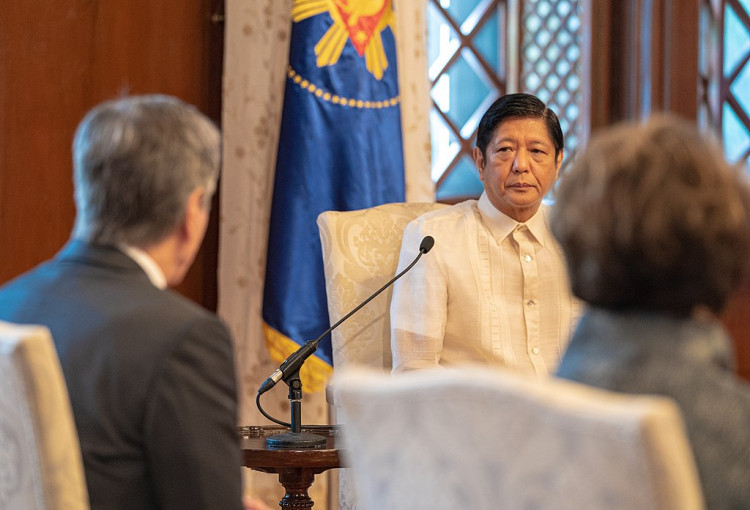In response to China's efforts to impose its authority in the South China Sea, U.S. President Joe Biden and his Philippine counterpart, Ferdinand Marcos, reiterated their support for freedom of passage and overflight on Thursday.
China has been charged with increasing its "provocations" against competing claimants to South China Sea territory and other nations operating there, according to the United States.
"The role of the United States in maintaining the peace in our region is something that is much appreciated by all the countries in the region and the Philippines especially," Marcos said.
On the fringes of the UN General Assembly, Biden and Marcos spoke for the first time face to face. Taking office in June is Bong-bong Marcos, son of the late President of the Philippines, Ferdinand Marcos.
After the talks, the White House released a statement saying that the leaders "discussed the situation in the South China Sea and underscored their support for freedom of navigation and overflight and the peaceful resolution of disputes."
The South China Sea, COVID-19, and renewable energy were among the topics that Biden mentioned as the two men started talking. Marcos was recognized for opposing the Russian aggression in Ukraine.
Given its geographic location, the Philippines is an important ally of the United States and crucial strategically in the event that the U.S. needs to defend Taiwan militarily from a Chinese attack.
Given the necessity to plan for such eventuality, the United States is eager to set up more access to bases in the Philippines.
"The leaders reflected on the importance of the US-Philippines alliance. President Biden reaffirmed the United States' ironclad commitment to the defense of the Philippines," the White House said.
A relative of Marcos who serves as Manila's ambassador to the U.S. said this month that the Philippines would only allow U.S. forces to use its military bases in the event of a battle with Taiwan "if it is important for us, for our own security."
The encounter with Biden highlights the remarkable change in circumstances for the discredited former ruling family of the Philippines, 36 years after the exile of Ferdinand Marcos due to a "people power" rebellion.
The newly elected president is visiting the country for the first time in 15 years. For refusing to cooperate with a Hawaii court that determined the Marcos family must pay $2 billion of looted riches to victims of abuses during his father's martial law regime, he is the subject of a U.S. contempt-of-court order. He has denied claims that members of his family stole money from the government.






